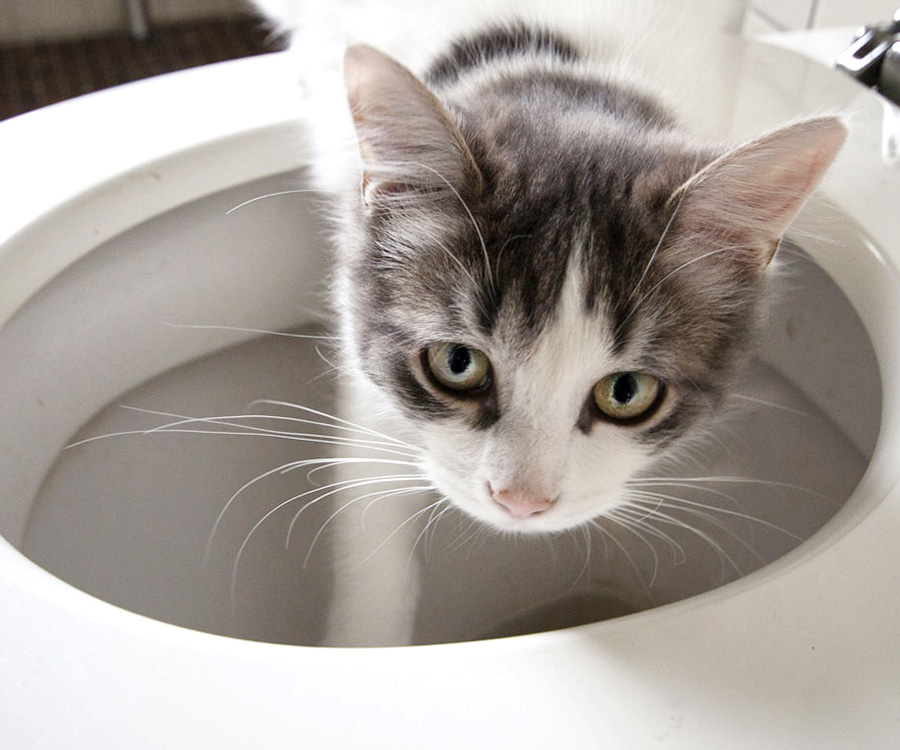Reasons You Should Never Flush Cat Poop Down Your Toilet - Important Facts
Reasons You Should Never Flush Cat Poop Down Your Toilet - Important Facts
Blog Article
We have found this article about How to Dispose of Cat Poop and Litter Without Plastic Bags listed below on the web and accepted it made good sense to write about it with you in this article.

Intro
As cat owners, it's vital to bear in mind just how we get rid of our feline close friends' waste. While it might appear hassle-free to purge feline poop down the commode, this method can have harmful repercussions for both the environment and human wellness.
Alternatives to Flushing
The good news is, there are much safer and more responsible means to take care of feline poop. Consider the adhering to options:
1. Scoop and Dispose in Trash
One of the most usual technique of getting rid of pet cat poop is to scoop it into an eco-friendly bag and throw it in the trash. Make certain to use a committed clutter scoop and throw away the waste immediately.
2. Usage Biodegradable Litter
Choose eco-friendly cat trash made from products such as corn or wheat. These litters are environmentally friendly and can be securely taken care of in the trash.
3. Hide in the Yard
If you have a backyard, take into consideration burying cat waste in an assigned location far from vegetable gardens and water sources. Make certain to dig deep enough to prevent contamination of groundwater.
4. Install a Pet Waste Disposal System
Buy an animal garbage disposal system specifically designed for cat waste. These systems use enzymes to break down the waste, reducing smell and ecological effect.
Health and wellness Risks
In addition to ecological worries, purging feline waste can also pose wellness risks to people. Cat feces might contain Toxoplasma gondii, a bloodsucker that can cause toxoplasmosis-- a possibly extreme disease, particularly for expectant women and people with damaged immune systems.
Ecological Impact
Purging pet cat poop introduces hazardous virus and parasites into the water supply, positioning a substantial threat to marine environments. These pollutants can adversely affect aquatic life and concession water top quality.
Conclusion
Accountable animal ownership prolongs beyond offering food and shelter-- it also involves appropriate waste administration. By refraining from purging feline poop down the bathroom and selecting different disposal techniques, we can minimize our ecological impact and safeguard human health.
Why You Should Never Flush Cat Poop Down the Toilet
A rose by any other name might smell as sweet, but not all poop is created equal. Toilets, and our sewage systems, are designed for human excrement, not animal waste. It might seem like it couldn’t hurt to toss cat feces into the loo, but it’s not a good idea to flush cat poop in the toilet.
First and foremost, assuming your cat uses a litter box, any waste is going to have litter on it. And even the smallest amount of litter can wreak havoc on plumbing.
Over time, small amounts build up, filling up your septic system. Most litter sold today is clumping; it is made from a type of clay that hardens when it gets wet. Ever tried to scrape old clumps from the bottom of a litter box? You know just how cement-hard it can get!
Now imagine just a small clump of that stuck in your pipes. A simple de-clogger like Drano isn’t going to cut it. And that means it’s going to cost you big time to fix it.
Parasitic Contamination
Believe it or not, your healthy kitty may be harboring a nasty parasite. Only cats excrete Toxoplasma in their feces. Yet it rarely causes serious health issues in the cats that are infected. Most people will be fine too if infected. Only pregnant women and people with compromised immune systems are at risk. (If you’ve ever heard how women who are expecting are excused from litter cleaning duty, Toxoplasma is why.)
But other animals may have a problem if infected with the parasite. And human water treatment systems aren’t designed to handle it. As a result, the systems don’t remove the parasite before discharging wastewater into local waterways. Fish, shellfish, and other marine life — otters in particular — are susceptible to toxoplasma. If exposed, most will end up with brain damage and many will die.
Depending on the species of fish, they may end up on someone’s fish hook and, ultimately on someone’s dinner plate. If that someone has a chronic illness, they’re at risk.
Skip the Toilet Training
We know there are folks out there who like to toilet train their cats. And we give them props, it takes a lot of work. But thanks to the toxoplasma, it’s not a good idea.

I found that article about Can You Flush Cat Poo or Litter Down the Toilet? while doing a lookup on the search engines. Sharing is good. One never knows, you may very well be doing someone a favor. Thank-you for taking the time to read it.
Estimate Report this page